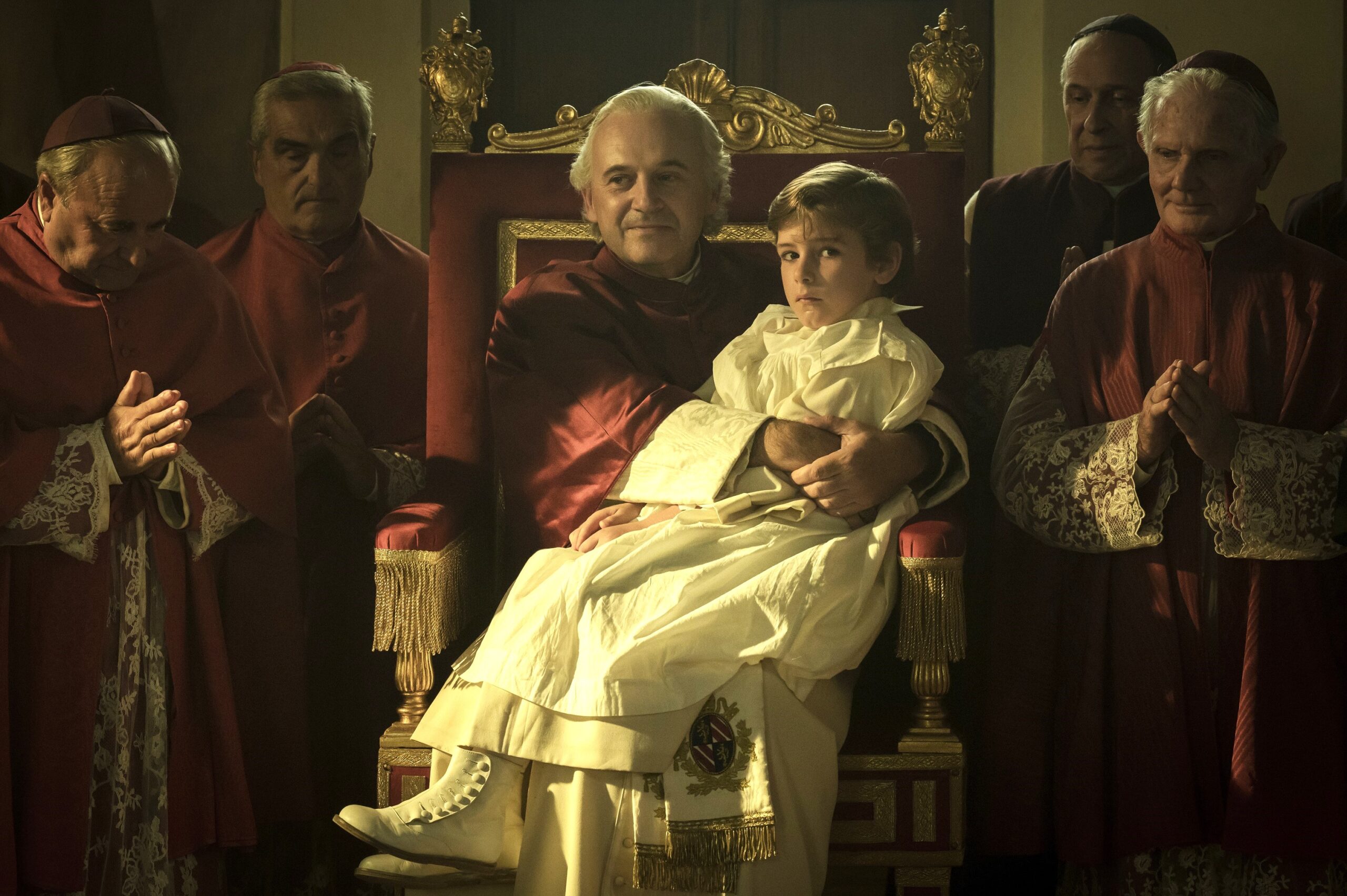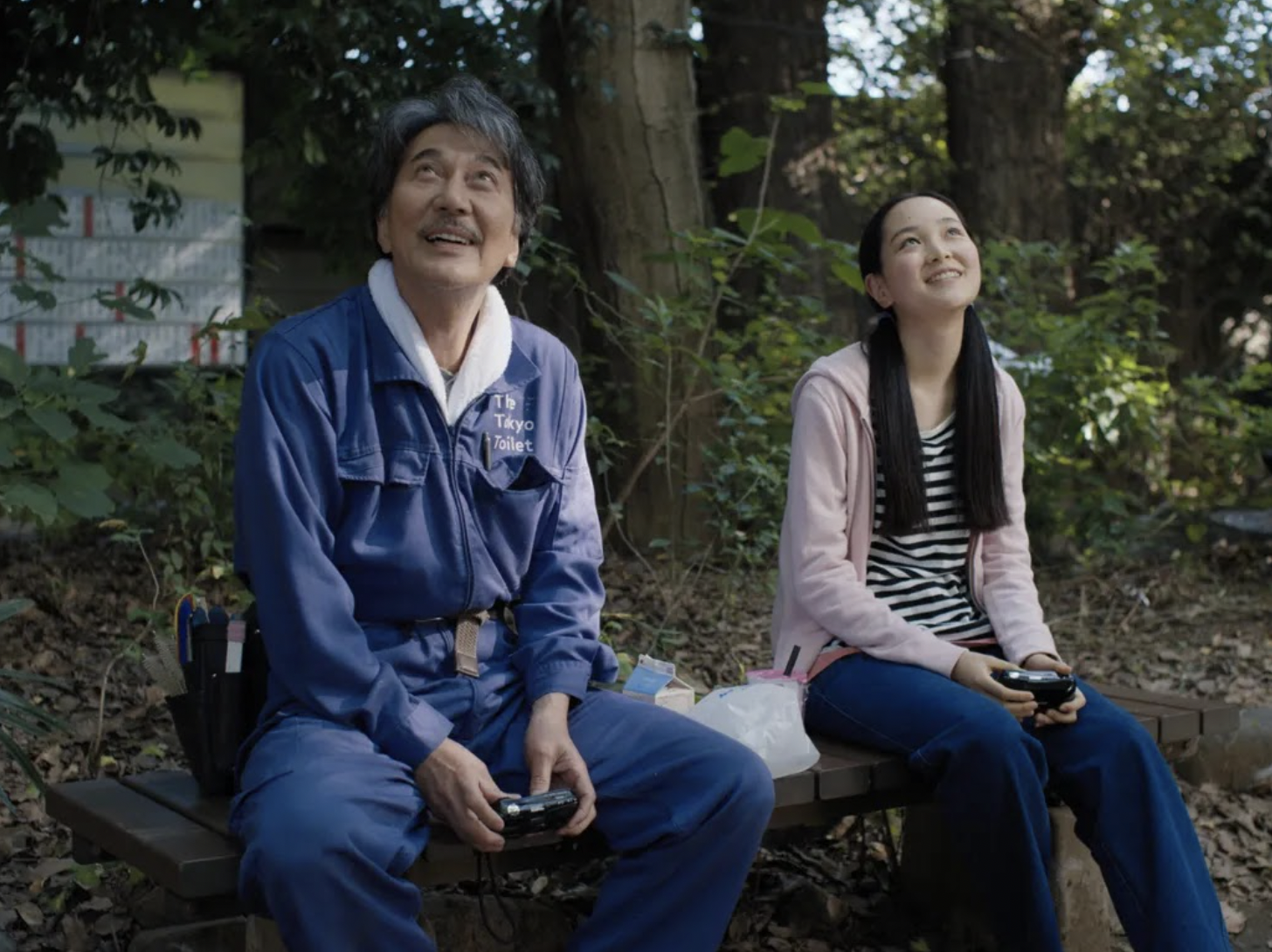‘Kidnapped’ (Dir. by Marco Bellocchio)

The film film in this capsule reviews piece is Marco Bellocchio’s “Kidnapped“. Marco Bellocchio has made some very fascinating and consistent works through the decades. He started in the 60s with films like “Fists in Pockets” and his contribution in “Love and Anger”. Bellocchio isn’t well-known in the United States. But international cinema lovers have appreciated and welcomed his works year after year. At the age of eighty-three-years-old, the Italian filmmaker is still up and running, crafting films based on his country’s history. Last year, he presented us with multiple glances at the Aldo Moro case with his television mini-series “Exterior Night”. Now, he’s back to telling a story that many don’t know about. It is another case that shocked the country when it happened. Titled “Kidnapped“, Bellocchio’s latest centers around Edgardo Mortara. He’s a young Jewish boy who was taken away from his family by the Papal States in the 1850s-1960s and raised as a Catholic.
This kidnapping happened way back in 1858 in Bologna, Italy. Momolo and Marianna Mortara (played by Fausto Russo Alesi and Barbara Ronchi) raise their eight children in the Jewish faith. However, on a dark night, they receive the news that one of their kids, Eduardo, has been baptized. The issue is that the parents don’t know about this baptism. And under Papal law, the Catholic Church will take Eduardo into custody—forced out of his home and stripped from his family. The priests keep Eduardo (played by Enea Sala in the younger ages of his life) in a private room where he must obey every single thing they tell him too, at least that’s what a fellow student tells him.
He’s of what might happen if he doesn’t do as said. Eduardo feels obligated to comply, with the chance that he might come home in a few days. But that won’t be the case. Bellocchio offers a couple of scenes and dialogue in the screenplay that add a dark element of foreshadowing to the film, letting us know that this unjust kidnapping went through, and nobody could do anything about it. This situation raised worldwide outrage among Jewish groups. And that same outrage is replicated in Bellcchio’s usual angsty filmmaking when telling these true-to-life stories. One of the aspects that Bellocchio tends to do with these historical pictures is departing them from realism on multiple occasions. This comes in the way of a dream sequence in Padre Pius (the over-the-top and cheesy Paolo Pierbara), where he sees a group of people trying to circumcise him.
The difference between this departure and the others in his filmography is that it doesn’t find its footing here. It arrives pretty much comical and farcical rather than thrilling or impactful. And I don’t think that was the director’s intention. Unlike the Aldo Moro case, Bellocchio obviously wasn’t alive when the Mortara case happened. This is a different experience in comparison to his other works. He takes a bit from his personal experiences to tell those types of tales. He remains with his direct eye on the impact of this case. But it feels that something is missing here that Bellocchio’s previous works contain. And that is the expansion and coverage of the complexity of said historical event. He decides to oversimplify the effects of this kidnapping. And with that oversimplification comes the conventional, a rarity in Bellocchio’s work.
You feel the excessive calculation behind every narrative beat. He scults everything to fit a mold. The only exception is the departures from realism that don’t work in their favor. There isn’t much space for analysis of the long-extending effects that the kidnapping will bring onto Eduardo’s life. The boy years later condemned the Pope for his actions amidst his experiences. Yet the psychological and emotional toll that the Papal state caused isn’t explored. The ideas that could concoct a more intriguing project than the one we see before us. He presented one of his most daring and best works in years with “Exterior Night.” And Marco Bellocchio follows it up with his bland picture that doesn’t have much technical weight.
Grade: C
‘Last Summer’ (Dir. Catherine Breillat)

The second film in this capsule reviews piece is Catherin Breillat’s “Last Summer“. Over the past forty years, French filmmaker Catherine Breillat has wanted to normalize taboo subjects in her cinema. With films like “Fat Girl” and “Romance,” Breillat wants to juxtapose humanity’s different perspectives to show the irony behind our daily living in emotional, psychological, and physical aspects. She has an interest in exploring the subjects of sexuality and gender through the coming-of-age anchor. Alongside her vision and filmmaking purpose, has been the catalyst of a handful of provocative scenes and moments that have stayed with those who have watched her pictures. On some occasions, those scenes have a purpose and add another layer to the story. In others, they take you out of the experience. Such a thing happens when she dwells on the overly explicit nature and the necessity to cause shock. Whether or not that was her purpose, it makes some viewers disengage with her work.
A remake of the Danish erotic-thriller by May el-Toukhy, “Queen of Hearts,” Breillat’s film switches the icy setting of Denmark to the sun-kissed streets of France, which is one of the few changes it makes from the original. And that alone makes you question why it was made and why the director “needed” to make her version. But the effect the film has over the audience is indicative of why Breillat was destined to make this story. “Last Summer” centers around a successful lawyer named Anne (played by a fantastic Léa Drucker, the best asset this film has). She’s married to a wealthy yet dull (and boring) businessman, Pierre (Olivier Rabourdin). Together, they have two adopted twin girls. You can say that she has a happy life, albeit bored by her husband’s dullness. Apart from that, everything seems fine. She’s living amidst the riches and is spoiled by her opulence. However, things are about to change.
The story will take an expected turn that’s expected to be provocative and confident, depending on Breillat’s approach. The arrival of Piere’s son from another marriage, the seventeen-year-old Theo (Samuel Kircher), changes the dynamics inside that household. Pierre’s ex-wife deemed him impossible to live with and couldn’t control Theo. But Anne is affected by his vulnerability and troubled persona. She’s strangely attracted to him; Anne sees the life missing from her husband’s aura in the young boy. And in addition, physically, he’s toned in comparison to Pierre. One thing leads to another, and they have a steamy affair. But this affair isn’t only in the story to provoke. It also reflects the ruthlessness that appears when Anne is in survival mode.
This is clear in her defensive nature when Theo reveals the situation to his father. She enforces some manipulation to obligate her partner to accept her chances. This concludes in rather uncomfortable situations outside of the taboo-like narrative center. Yet, Breillat never dwells too far enough from this provocation. Instead, there’s a beating heart in the story that evokes a reaction, one that is welcomed more so than detachment. Breillat’s first film in almost a decade has some intriguing aspects. Most of which relate to the director’s approach to storytelling. There aren’t many filmmakers like her who want to deliver daring and disruptive work. I believe that is a fault of the filmmakers of the world, as viewers need to be challenged with the cinematic intake they come across. It gives you different perspectives, both from a psychological and emotional standpoint, that provoke the mind and question your morals.
“Last Summer” doesn’t have much of that, at least in an amount that one would consider confrontational or gripping, in comparison to her previous work. Her first few films contained a shocking factor. In this case, everything is brought down more deliberately, grounded rather than reactionary. And Léa Drucker captures every emotion necessary to encapsulate them and shower the film with some brevity. She is an excellent actress who has been very dependable in plenty of dramatic pictures. But in this film, Drucker demonstrates how strong of a talent she is.
The film doesn’t reach that ice-cold heart that is occasionally hinted at, nor do you see the most cruel version of each scenario. That is because Breillat is holding back sometimes. It doesn’t seem that she’s in her comfort zone with the pre-established narrative structure of the May el-Toukhy film it is based on. It is weird since what I have experienced with the French director’s other work doesn’t show the skills of a director who is afraid to create complex and bold scenarios. But in some situations, she doesn’t want to be in that position. Instead, Breillat wants to leave behind what she did before and opt out for a “more mature” version of the pet topics she is used to playing with. It is an exercise in the likes of Gaspar Noe transitioning from “Love” to “Vortex”, with the dramatic sensibilities of “Last Summer” being long-term wound-inducing rather than cutthroat.
Grade: B+
‘Perfect Days’ (Dir. Wim Wenders)

The third (and final) film in this capsule review piece is Wim Wenders’ “Perfect Days“, which won the Cannes Film Festival’s Best Actor award for its lead, Koji Yakusho. Wim Wenders is among the most celebrated filmmakers in the New German Cinema movement. He’s a legend and revolutionary in his own right. Wenders was the one who truly broke out from that movement and shared it with the world through a tactile and beautiful lens. His fascination for lavish horizons and emotional contours have paved the way for the palpable factors in his pictures. You can sense each feeling and understand each character’s motives. And you see his growth through the years as he expands through genre, albeit still containing that dramatic core close to its beating heart—hence his transitions from “Alice in the Cities” and “Wings of Desire” to “Until the End of the World” and his documentarian works (“Pina,” “The Salt of the Earth“).
It has been a while since Wenders made a big splash with one of his works, and it seems that this isn’t the time, as his latest picture, “Perfect Days,” is a pompous and disappointing affair. In “Perfect Days,” Wenders aims for calmness and simplicity, following the story of a middle-aged man called Hirayama (Koji Yakusho) who spends most of his days cleaning toilets in Tokyo’s Shibuya District. However, with that same simplicity of this character’s life on paper, there are domineering and absurd details that don’t feel moderately human. Hirayama has a specific daily routine that helps him go through his days.
You can say that, in a sense, Wenders takes a bit from Chantal Akerman’s playbook to curate his latest picture, as it will begin to remind you of “Jeanne Dielman, 23 quai du Commerce, 1080 Bruxelles,” albeit without the beautiful intricacies of the Akerman’s touch (or the complexity of her delicate scene by scene construction). Hirayama takes pictures of trees, reads classic literature, and before he goes to his next stop to clean, listens to classic rock tunes from Loud Reed (hence the title of this film; named after the titular track of his second post-Velvet Underground record, “Transformer”), Patti Smith, and The Kinks. This repetition might frustrate other people, giving them chills down their spine due to the mundanity of life eating them alive. But not Hirayama. He basks in it, savoring the beauty of living. This diligent man wakes up every day and does his activities.
For him, that’s all he needs. It is his medicine for melancholy and loneliness. That’s how he fights the draining essence of existence—one foot, frame, rock track, and toilet at a time. He just smiles at life no matter the situation. Occasionally, it smiles back at him via the beauty of nature and some random human connection. Hirayama’s calmness is intertwined with Wender’s soothing vision, a pairing that translates into some charming scenes. We are shown how his life works from the beginning of the day until he falls asleep. At some moments, he encounters people who cause shifts in his routine meaningfully, at least for him and not so much for the audience watching.
The main problem with “Perfect Days” is that no underlying coldness or essence of regret is scattered in any sense. The best form of these stories centers around the division between conformity amidst tragedy and joy amidst darkness – almost as a sense of “what could have been”. There’s no such emotion in Wender’s latest, whereas his best works do that same balance or focus on the melancholy side of things to an absorbing degree. And that’s where the details behind each activity Hirayama takes come into play. These details help map out his personality but not the emotions he feels. They don’t suggest what makes him an intriguing character.
Of course, the Japanese actor is terrific in the role. The problem is that you never think Wenders doesn’t explore him to the fullest capabilities. Wenders needed such emotion at the core of his film so an inner confrontation of the lead’s current humility and what struck him into that position could happen. He takes empathy and does mealy-mouthed dramatic panderings with it to a rather astonishing degree that took me out of the experience. “Perfect Days” wants to be a slice-of-life film that makes viewers cherish the little moments and things we have in life. However, it contains a pompous attire that doesn’t exhibit genuine emotions.
That keeps it desolated from similar or recognizable emotions or scenarios that people have (or might have) gone through. This is a rare position that Wenders is in. Most of his realistic work, not involving the elements of sci-fi or fantasy, often hit the nail in the coffin in those affecting sensibilities. And it is disappointing that one reminiscent of its 70s inspirations only goes for a thin layer of subtext instead of a realistic and broad view of the effects of life’s mundanity. While Yakusho does make the best out of the weak material, there’s just no meat to chew on.
Grade: D
“Kidnapped”, “Last Summer,” and “Perfect Days” are currently playing at the New York Film Festival. The festival goes from September 29th – October 15th. Join us for continual coverage.


